
The Enchanting House of Wonders in Stone Town, Tanzania
Step into the heart of Stone Town and discover the House of Wonders, a grand relic of Zanzibar's past. This historic building, also known as Beit-al-Ajaib, is one of Stone Town's most iconic landmarks. Built in 1883 by Sultan Barghash bin Said, it was the first building in Zanzibar to have electricity and an elevator, earning its name for the marvels it held within. As you walk through the corridors of the House of Wonders, you'll be transported back to a time when Zanzibar was a thriving hub of trade and culture. The building now houses the Museum of History & Culture of Zanzibar, offering a rich tapestry of exhibits that showcase the island's Swahili and Arab heritage. The museum provides a deep dive into the island's maritime history, traditional crafts, and the spice trade that once made Zanzibar a global crossroads. Outside the House of Wonders, the vibrant streets of Stone Town await. Wander through narrow alleys lined with beautifully carved wooden doors, bustling bazaars, and cozy cafes. The blend of African, Arab, Indian, and European influences is evident at every turn, making Stone Town a melting pot of cultures where history and modern life coexist harmoniously.
Local tips in House of Wonders
- Visit early in the morning to avoid the midday heat and large crowds.
- Wear comfortable walking shoes as Stone Town’s alleys are best explored on foot.
- Carry some cash; many local vendors and cafes do not accept credit cards.
- Take a guided tour to fully appreciate the rich history and cultural significance of the House of Wonders.
- Don’t miss the rooftop views for a panoramic look at Stone Town and the Indian Ocean.
The Enchanting House of Wonders in Stone Town, Tanzania
Step into the heart of Stone Town and discover the House of Wonders, a grand relic of Zanzibar's past. This historic building, also known as Beit-al-Ajaib, is one of Stone Town's most iconic landmarks. Built in 1883 by Sultan Barghash bin Said, it was the first building in Zanzibar to have electricity and an elevator, earning its name for the marvels it held within. As you walk through the corridors of the House of Wonders, you'll be transported back to a time when Zanzibar was a thriving hub of trade and culture. The building now houses the Museum of History & Culture of Zanzibar, offering a rich tapestry of exhibits that showcase the island's Swahili and Arab heritage. The museum provides a deep dive into the island's maritime history, traditional crafts, and the spice trade that once made Zanzibar a global crossroads. Outside the House of Wonders, the vibrant streets of Stone Town await. Wander through narrow alleys lined with beautifully carved wooden doors, bustling bazaars, and cozy cafes. The blend of African, Arab, Indian, and European influences is evident at every turn, making Stone Town a melting pot of cultures where history and modern life coexist harmoniously.
Iconic landmarks you can’t miss
Old Fort
Discover the Old Fort of Zanzibar, a historic fortress blending culture, architecture, and breathtaking views in the heart of Stone Town.
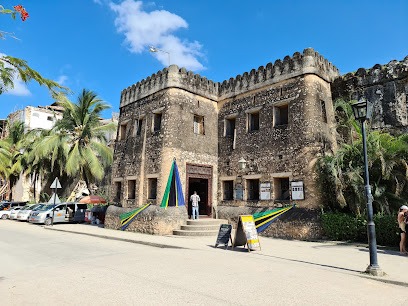
People's Palace Museum
Explore Zanzibar's heritage at the People's Palace Museum, a cultural gem in Stone Town showcasing the island's fascinating history and traditions.
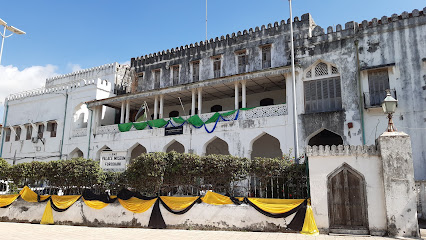
House of Wonders
Explore the rich history of Zanzibar at the House of Wonders, a cultural museum showcasing the island's unique heritage and stunning architecture.
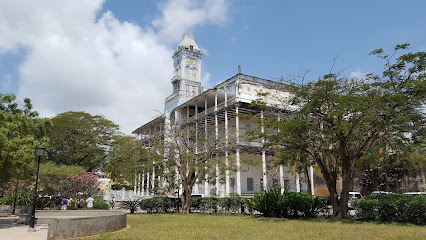
The ancient door of Stone Town
Explore the Ancient Door of Stone Town, a historic gateway embodying the rich culture and heritage of Zanzibar's vibrant history.
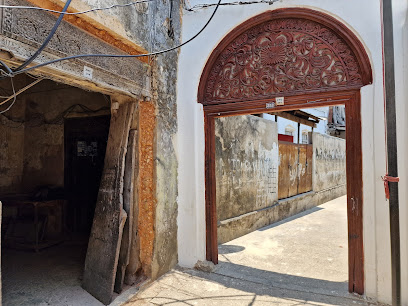
Unmissable attractions to see
People's Palace Museum
Explore the People's Palace Museum in Zanzibar, a captivating journey through the island's vibrant history and cultural heritage.
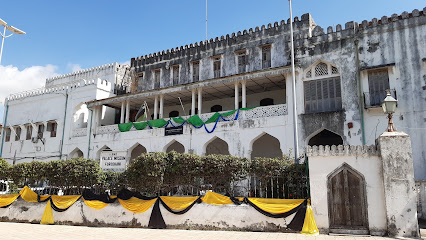
Peace Memorial Museum
Unveil the layers of history at Zanzibar's Peace Memorial Museum, a tribute to resilience and the quest for freedom.
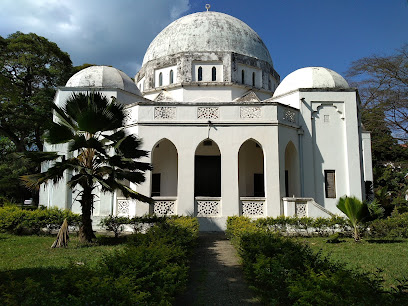
House of Wonders
Explore the House of Wonders, a cultural museum in Zanzibar that showcases the island's rich history and diverse heritage through captivating exhibits.
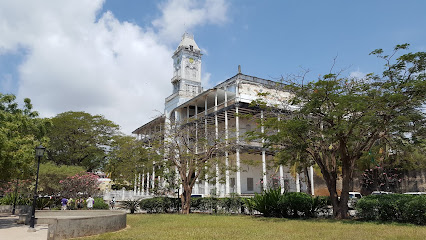
Zanzibar Stone Town Heritage Society (ZSTHS)
Explore the vibrant history of Zanzibar at the Stone Town Heritage Society, a museum showcasing the island's unique cultural tapestry.
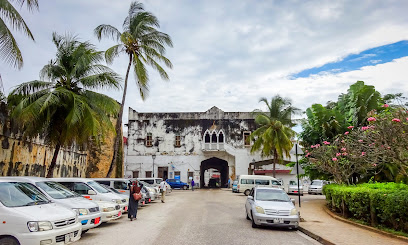
Landscape and taking pictures
Explore the breathtaking landscapes of Zanzibar, where every corner offers a stunning backdrop for your travel photography.
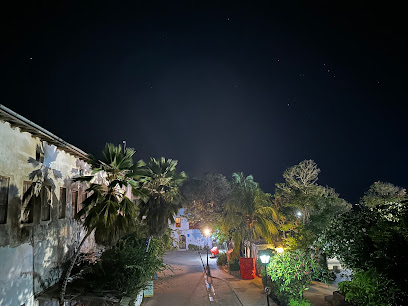
Chetu's Gemstones & Jewelries
Explore Chetu's Gemstones & Jewelries in Stone Town for exquisite handcrafted jewelry that embodies the spirit of Zanzibar's rich culture.
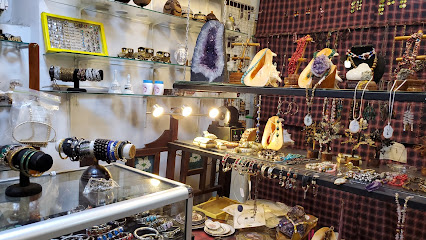
Essential places to dine
Lukmaan Restaurant
Experience authentic Zanzibari flavors at Lukmaan Restaurant in Stone Town – a culinary gem where tradition meets taste.
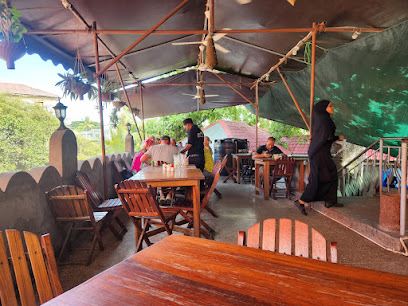
The Silk Route
Experience authentic Indian cuisine at The Silk Route in Zanzibar's Stone Town—where tradition meets flavor amidst stunning surroundings.
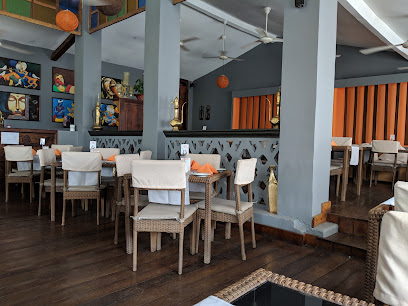
Masa Japanese Restaurant
Experience authentic Japanese cuisine at Masa Japanese Restaurant in Stone Town - where tradition meets flavor.
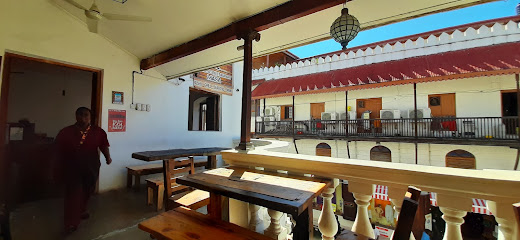
Secret Garden
Discover exquisite flavors in an enchanting garden setting at The Secret Garden in Stone Town, Zanzibar.
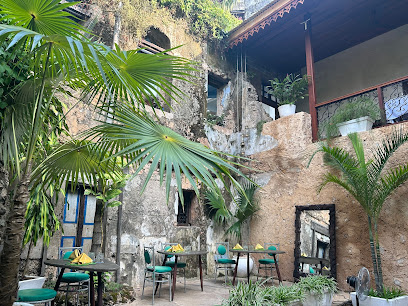
Krishna Food House
Discover the vibrant flavors of Zanzibar at Krishna Food House, Stone Town's premier vegetarian restaurant offering authentic local cuisine.
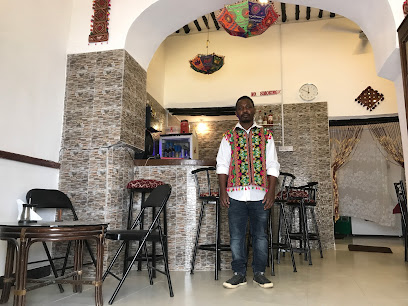
New Monsoon Restaurant
Experience exquisite dining at New Monsoon Restaurant in Forodhani Garden, Zanzibar - where local flavors meet culinary artistry.
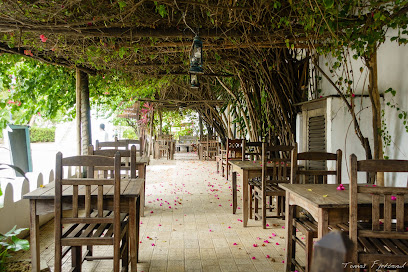
Tembo Bahari Restaurant
Experience authentic Zanzibari cuisine at Tembo Bahari Restaurant with stunning ocean views and a vibrant atmosphere.
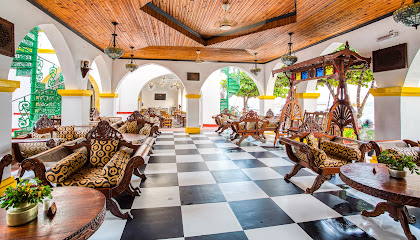
Zenji Food Lovers Joint
Discover authentic Zanzibari flavors at Zenji Food Lovers Joint in Stone Town - where every meal is a celebration of local culinary traditions.
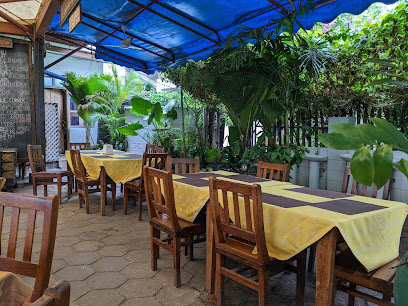
Sharazad The Door Restaurant & Cafe
Experience authentic Zanzibari flavors at Sharazad The Door Restaurant & Cafe, where delightful cuisine meets warm hospitality in Stone Town.
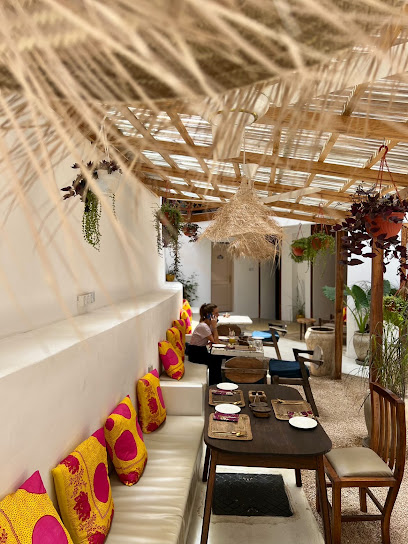
Vivi Café
Experience authentic Zanzibari cuisine at Vivi Café in Stone Town—where flavorful grills meet cultural charm.
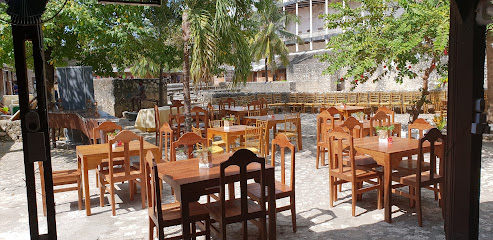
Markets, malls and hidden boutiques
The Zanzibar Curio Shop
Discover unique antiques and local crafts at The Zanzibar Curio Shop in the heart of Stone Town, a treasure trove for every traveler.
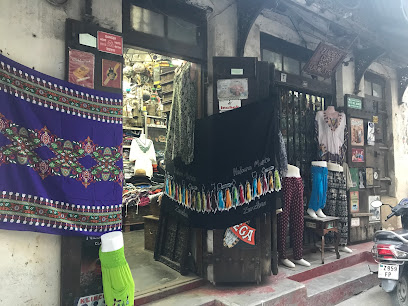
aromas of zanzibar
Discover the essence of Zanzibar at Aromas of Zanzibar – your destination for unique souvenirs and local crafts in Stone Town.
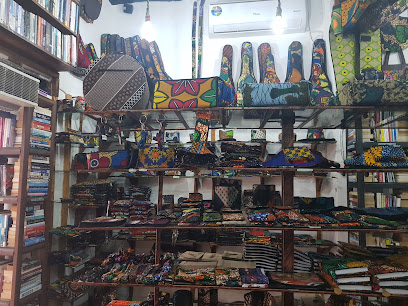
K & K curio shop
Explore the vibrant K & K Curio Shop in Stone Town, where authentic Zanzibari handicrafts meet rich cultural heritage.
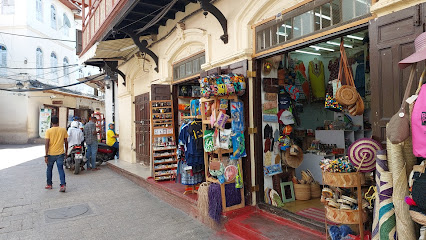
CHAKO Shop
Explore CHAKO Shop in Stone Town, Zanzibar: a boutique offering unique handcrafted treasures that reflect the island's rich culture.
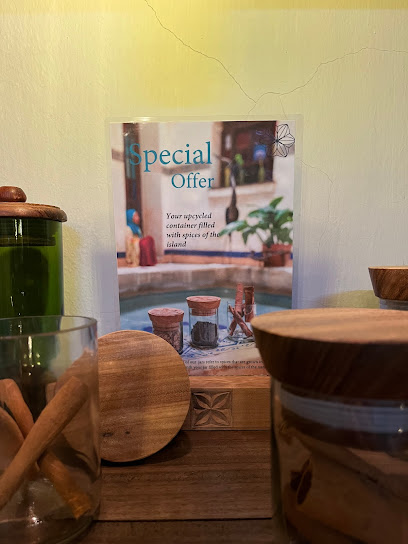
The Wonders Boutique
Discover authentic Zanzibari craftsmanship at The Wonders Boutique, where unique treasures and rich cultural heritage await.
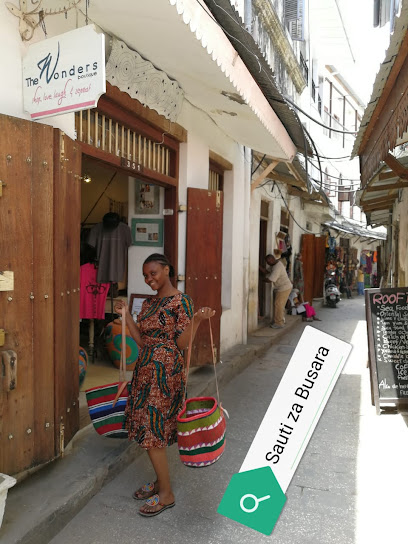
Chimlo’s Curio Shop
Explore Chimlo’s Curio Shop in Stone Town, Zanzibar—your go-to destination for unique local crafts and memorable souvenirs.
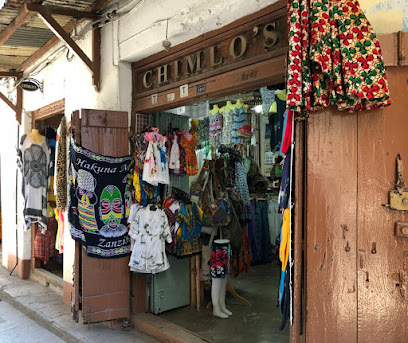
Chimlo's Boutique - Peace & Love Corner
Explore the vibrant designs and local craftsmanship at Chimlo's Boutique in Zanzibar's historic Stone Town.
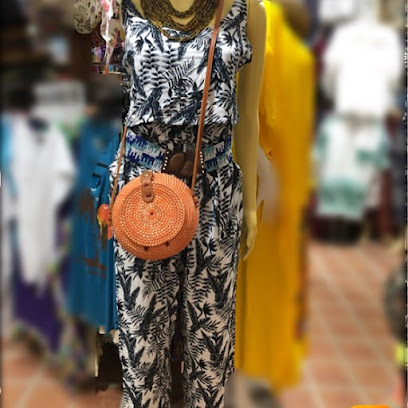
Nakupenda Art Gallery
Explore Nakupenda Art Gallery in Stone Town, where local creativity meets vibrant fashion, showcasing the unique spirit of Zanzibar.
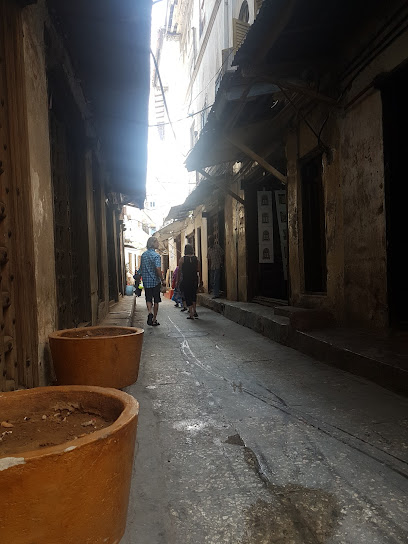
The African boutique
Discover the vibrant essence of Zanzibar at The African Boutique, where local fashion meets cultural heritage in the heart of Stone Town.
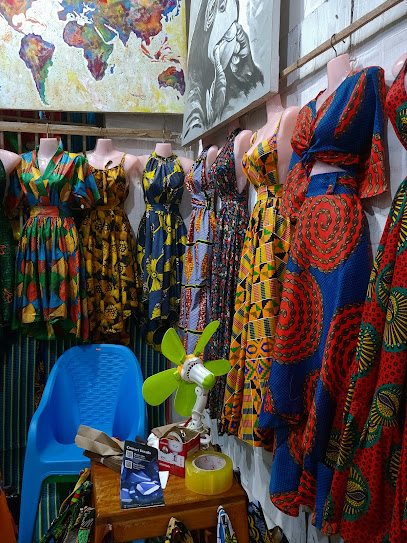
Sasa - Handmade in Zanzibar
Explore Sasa - Handmade in Zanzibar, a boutique showcasing unique handcrafted treasures that embody the spirit of Zanzibari artistry.
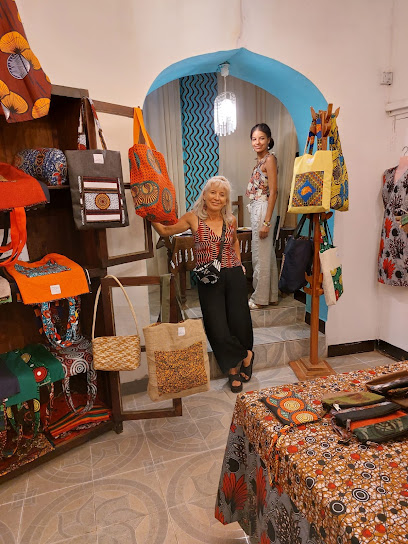
Essential bars & hidden hideouts
Beach House Zanzibar
Discover the vibrant flavors of Zanzibar at Beach House, a fusion restaurant and cocktail bar in the heart of Stone Town.
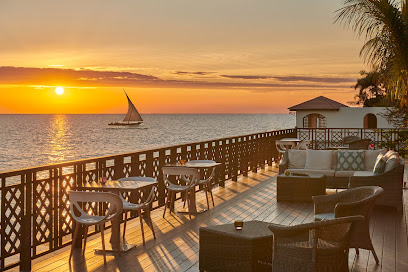
Mercury's Bar
Experience the flavors of Zanzibar at Mercury's Bar, where stunning ocean views meet delicious local and international cuisine.
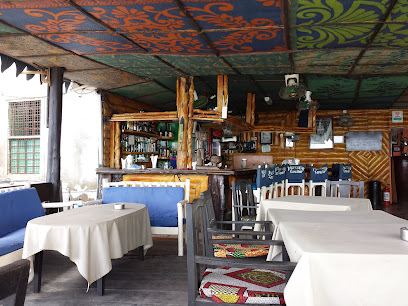
Secret Garden
Explore the hidden culinary gems of Zanzibar at Secret Garden, where local flavors meet tranquility in a lush garden setting.
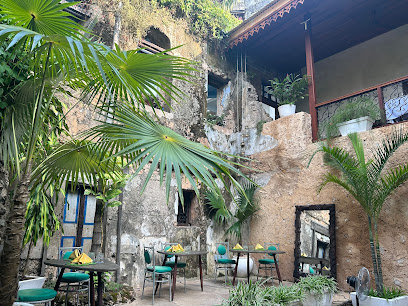
The Sunset Bar - Africa House Hotel
Experience breathtaking sunsets and delicious cuisine at The Sunset Bar in Stone Town, Zanzibar—a perfect retreat for travelers.
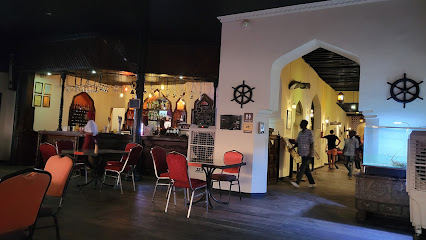
Old Castle Zanzibar
Savor the rich flavors of Zanzibar at Old Castle Zanzibar, where culinary excellence meets historic charm in the heart of Stone Town.
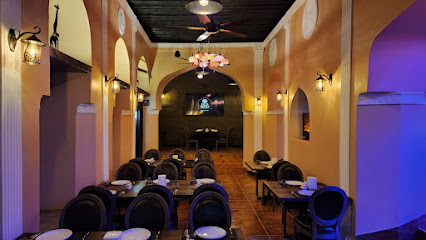
Vivi Café
Discover the rich culinary heritage of Zanzibar at Vivi Café, where delicious grilled dishes meet historic surroundings.
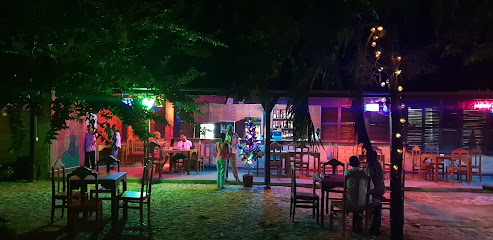
Masahani bar
Experience the vibrant atmosphere and stunning ocean views at Masahani Bar, the ultimate destination for cocktails in Zanzibar.
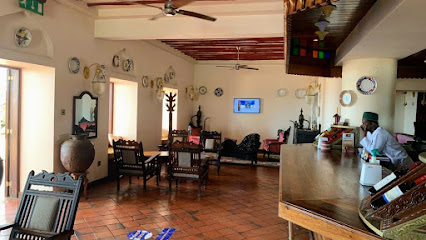
Living Room at Park Hyatt Zanzibar
Experience the elegance and charm of Living Room at Park Hyatt Zanzibar, where exquisite cocktails meet stunning ambiance in historic Stone Town.
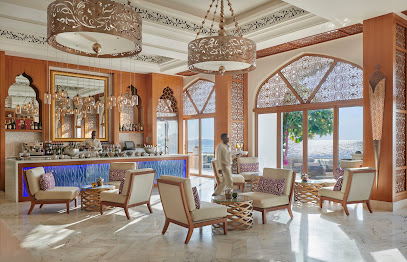
Floating Bar
Discover the Floating Bar in Zanzibar: a unique floating oasis offering cocktails, snacks, and unforgettable sunset views over the Indian Ocean.
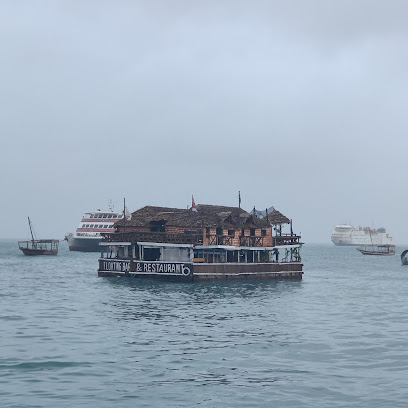
The best local breakfast bar
Discover the authentic taste of Zanzibar at the best local breakfast bar in Stone Town, where tradition meets flavor every morning.
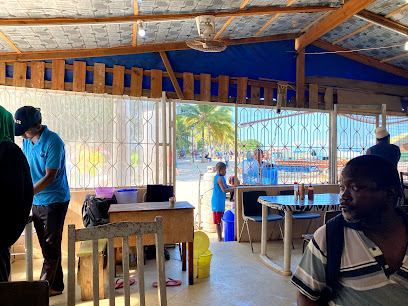
Local Phrases
-
- HelloJambo
[jahm-boh] - GoodbyeKwaheri
[kwah-heh-ree] - YesNdio
[n-dee-oh] - NoHapana
[hah-pah-nah] - Please/You're welcomeTafadhali
[tah-fah-dah-lee] - Thank youAsante
[ah-sahn-teh] - Excuse me/SorrySamahani
[sah-mah-hah-nee] - How are you?U hali gani?
[oo hah-lee gah-nee] - Fine. And you?Salama. Na wewe?
[sah-lah-mah. nah weh-weh] - Do you speak English?Unazungumza Kiingereza?
[oo-nah-zoon-goom-zah kee-een-geh-reh-zah] - I don't understandSielewi
[see-eh-leh-wee]
- HelloJambo
-
- I'd like to see the menu, pleaseNingependa kuona menyu, tafadhali
[nee-ngeh-pehn-dah kwoh-nah meh-nyoo, tah-fah-dah-lee] - I don't eat meatSili nyama
[see-lee nyah-mah] - Cheers!Afya!
[ah-fyah] - I would like to pay, pleaseNingependa kulipa, tafadhali
[nee-ngeh-pehn-dah koo-lee-pah, tah-fah-dah-lee]
- I'd like to see the menu, pleaseNingependa kuona menyu, tafadhali
-
- Help!Msaada!
[msah-ah-dah] - Go away!Nenda zako!
[nehn-dah zah-koh] - Call the Police!Piga Polisi!
[pee-gah poh-lee-see] - Call a doctor!Piga daktari!
[pee-gah dahk-tah-ree] - I'm lostNimepotea
[nee-meh-poh-teh-ah] - I'm illNinaumwa
[nee-nah-oom-wah]
- Help!Msaada!
-
- I'd like to buy...Ningependa kununua...
[nee-ngeh-pehn-dah koo-noo-nwah] - I'm just lookingNatazama tu
[nah-tah-zah-mah too] - How much is it?Bei ni kiasi gani?
[beh-ee nee kee-ah-see gah-nee] - That's too expensiveHilo ni ghali sana
[hee-loh nee gah-lee sah-nah] - Can you lower the price?Unaweza kupunguza bei?
[oo-nah-weh-zah koo-poon-goo-zah beh-ee]
- I'd like to buy...Ningependa kununua...
-
- What time is it?Saa ngapi?
[sah-ah ngah-pee] - It's one o'clockSaa moja
[sah-ah moh-jah] - Half past (10)Nusu saa kumi
[noo-soo sah-ah koo-mee] - MorningAsubuhi
[ah-soo-boo-hee] - AfternoonMchana
[m-chah-nah] - EveningJioni
[jo-ee-nee] - YesterdayJana
[jah-nah] - TodayLeo
[leh-oh] - TomorrowKesho
[keh-shoh] - 1Moja
[moh-jah] - 2Mbili
[m-bee-lee] - 3Tatu
[tah-too] - 4Nne
[neh] - 5Tano
[tah-noh] - 6Sita
[see-tah] - 7Saba
[sah-bah] - 8Nane
[nah-neh] - 9Tisa
[tee-sah] - 10Kumi
[koo-mee]
- What time is it?Saa ngapi?
-
- Where's a/the...?Iko wapi...?
[ee-koh wah-pee] - What's the address?Anwani ni ipi?
[ahn-wah-nee nee ee-pee] - Can you show me (on the map)?Unaweza kunionyesha (kwenye ramani)?
[oo-nah-weh-zah koo-nee-oh-nyeh-shah kweh-neh rah-mah-nee] - When's the next (bus)?Basi la pili litakuja lini?
[bah-see lah pee-lee lee-tah-koo-jah lee-nee] - A ticket (to ....)Tiketi (kwenda ...)
[tee-keh-tee kwehn-dah]
- Where's a/the...?Iko wapi...?
History of House of Wonders
-
The House of Wonders, or 'Beit al Ajaib', was constructed in 1883 and served as a ceremonial palace for Sultan Barghash bin Said. It was the first building in East Africa to have electricity and an elevator, showcasing the Sultan's ambition to modernize Zanzibar. The architectural design reflects a blend of Swahili, Arab, and European influences, making it a vital emblem of the region's rich cultural tapestry.
-
The House of Wonders was not only a royal residence but also a center for political activity. Following the revolution of 1964, the building was repurposed as a museum, highlighting the history and culture of Zanzibar and its people. This transition marked a significant shift from a royal palace to a public space dedicated to education and cultural preservation.
-
During the Zanzibar Revolution in January 1964, the House of Wonders was a focal point of the upheaval. As the revolutionaries sought to overthrow the Sultanate, the building became a symbol of the old regime. The events that unfolded led to profound changes in Zanzibar's political landscape and the eventual establishment of a republic, altering the course of its history.
-
In 2000, Stone Town, including the House of Wonders, was designated a UNESCO World Heritage Site. This recognition underscored the area's historical importance and its architectural heritage, which reflects the cultural exchanges that have taken place over centuries. The House of Wonders remains a key attraction for visitors, illustrating the unique blend of influences that characterize Stone Town.
-
Today, the House of Wonders serves as a museum showcasing the history of Zanzibar, its culture, and its people. It hosts various exhibitions related to the maritime history, traditional crafts, and the diverse communities that have resided in Zanzibar. Events held at the house contribute to the ongoing narrative of Zanzibar's cultural identity, attracting both locals and tourists.
House of Wonders Essentials
-
The House of Wonders is located in the heart of Stone Town, easily accessible from various neighborhoods. If you are coming from the Forodhani Gardens or the Old Fort, it is just a short walk away, taking approximately 10 minutes. If you are staying further away, such as in the Shangani or Mkunazini areas, you can take a local taxi or a 'dala dala' (minibus), which are common forms of public transport in Zanzibar. Be sure to confirm the destination with the driver, as routes can vary.
-
The House of Wonders is best explored on foot due to the narrow, winding streets of Stone Town. Walking allows you to fully appreciate the architecture and vibrant atmosphere. 'Dala dalas' are available for longer distances, but within the vicinity, it's advisable to walk or hire a local guide. Bicycles can also be rented from local shops, although navigating through the busy streets can be challenging.
-
Stone Town is relatively safe for tourists, but standard precautions should be taken. Areas such as the outskirts of the market at night can be less secure, and petty crimes like pickpocketing can occur in crowded places. Always keep your belongings secure and avoid displaying valuables. It is recommended to stay vigilant, especially in less crowded areas.
-
In case of emergencies, dial 112 for police assistance or 999 for ambulance services in Zanzibar. There are hospitals and clinics in Stone Town, such as the Mnazi Mmoja Hospital. It is advisable to have travel insurance that covers medical emergencies. For minor health issues, local pharmacies can provide over-the-counter medications.
-
Fashion: Do dress modestly, especially when visiting the House of Wonders and other cultural sites. Avoid wearing revealing clothing. Religion: Do respect local customs and traditions. When visiting mosques, always cover your head and shoulders. Public Transport: Do be polite and offer your seat to elderly passengers. Don’t eat or drink on public transport. Greetings: Do greet locals with a friendly 'Jambo' (hello) and a handshake. Eating & Drinking: Do try local street food but ensure it’s from a reputable vendor. Don’t refuse food or drink offered to you, as it is considered impolite.
-
To experience the House of Wonders like a local, visit during off-peak hours to avoid crowds. Engage with local artisans selling crafts nearby, as they often have fascinating stories behind their work. Take time to explore the surrounding streets, where you can find hidden cafes and shops. Don't miss the sunset at Forodhani Gardens, where locals gather for evening snacks and socializing, providing a vibrant atmosphere.
Nearby Cities to House of Wonders
-
Things To Do in Zanzibar City
-
Things To Do in Dar es Salaam
-
Things To Do in Tanga
-
Things To Do in Morogoro
-
Things To Do in Diani Beach
-
Things To Do in Mombasa
-
Things To Do in Malindi
-
Things To Do in Moshi
-
Things To Do in Dodoma
-
Things To Do in Arusha
-
Things To Do in Iringa
-
Things To Do in Lamu
-
Things To Do in Singida
-
Things To Do in Nairobi
-
Things To Do in Naivasha









